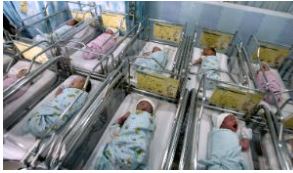TomcasterSchool - School and state funded schools of decision – those in school areas that enable understudies to look over any number of schools as opposed to zoning them to only one – are less inclined to empower understudies with a past filled with poor conduct, low scholastic accomplishment or unique needs to apply.
Contract schools, specifically, were more averse to energize understudies with a possibly critical uncommon need to apply.
That is the most recent research distributed Thursday by Peter Bergman, an associate educator at Columbia University's Teachers College, and Isaac McFarlin Jr., right hand teacher at University of Florida's College of Education.
The analysts sent messages from invented guardians to almost 6,500 schools in 29 states and the District of Columbia, asking whether any understudy is qualified to apply to the school and how to do as such. Each email flagged either a handicap status, poor conduct, high or low earlier scholarly accomplishment, or no trademark by any means. The specialists additionally fluctuated understudies' inferred race, family structure and sexual orientation.
https://id.wikipedia.org/wiki/U.S._News_%26_World_Report
"We find that schools react less frequently to messages in regards to understudies whom schools may see as all the more difficult to teach," the scientists finished up.
The standard reaction rate was 53 percent. In any case, messages flagging an understudy with a conceivably prohibitive exceptional need were 5 rate indicates more outlandish get a reaction; messages flagging a conduct issue were 7 rate indicates more uncertain get a reaction; and messages motioning earlier low scholarly accomplishment were 2 rate indicates more outlandish get a reaction.
Strikingly, messages showing decent evaluations and participation were neither more nor more averse to get a reaction.
In one sub-investigation, the specialists analyzed the reactions of sanction schools specifically to the close-by customary government funded schools. In general, they found the reaction rates comparable with one noteworthy exemption: If an email flagged a kid had a huge extraordinary need, contract schools were 7 rate indicates more outlandish react while customary state funded schools were not pretty much prone to react.
"This is a standout amongst the most striking discoveries of the investigation," McFarlin stated, "in light of the fact that it brings up the issue of whether high-performing contract schools are effective to some degree since they screen out the costliest-to-instruct understudies from their candidate pools."
The analysts underscored the significance of the particular finding since understudies with inabilities are, all things considered, twice as costly to instruct than understudies without a handicap, and those with serious incapacities, they stated, can cost eight to multiple times to teach.
The analysts additionally discovered contrasts accordingly rates by the suggested race of the family, yet not by family unit structure: Schools were 2 rate indicates more uncertain react to messages marked by "Hispanic-sounding names." And while there were powerless contrasts distinguished accordingly rates for messages marked by "Dark sounding names," the distinctions were biggest in schools serving prevalently white understudies.
Contract schools are state funded schools, and along these lines they are lawfully required, as conventional government funded schools, to acknowledge and make lodging for any understudy who wishes to select. Most work their affirmations dependent on a typical application and a lottery framework so as to guarantee decency.
"Be that as it may, regardless of whether schools can't control whom they concede, gratings in the decision procedure may even now given them a chance to impact who applies," the writers compose. "Families regularly need data about schools' qualification prerequisites, quality, and confirmation forms. These gratings raise the likelihood that schools of decision control the candidate pool by giving less application data to the guardians of youngsters saw as increasingly hard to teach."
Commentators of contract schools have since quite a while ago contended that they siphon the best understudies out of customary government funded schools – high-performing understudies who are anything but difficult to teach and have couple of conduct difficulties and handicaps.
In any case, sanction school advocates have pushed back on that contention, and state the new research exhibits no proof to propose understudies were not allowed enlistment in schools. Also, actually, they state, this report recommends that all schools could improve the situation with their interchanges endeavors. Had the anecdotal families proceeded with an application, the understudies likely would have been acknowledged.
"Sanctions are government funded schools open to all understudies and are educational cost free," said a representative for the National Alliance of Public Charter Schools. "We didn't find in the investigation any discoveries that understudies were in reality kept from enlisting in any sanction school for any of the reasons that the scientists were trying. The investigation does anyway recommend that schools could enhance their authoritative and interchanges rehearses when reacting to request from individuals from general society and guardians."
Sanction schools are the quickest developing kind of school decision in the U.S. As per the National Center on Education Statistics, in excess of 2,000 contract schools have opened since 2010. They select around 3 million understudies at about 7,000 schools in 43 states and D.C.
In general, understudies at sanction schools will in general play out no preferred or more terrible over customary state funded schools. Be that as it may, sanction schools in urban regions, the analysts note, which regularly grasp a "no-pardons" attitude in which understudies are held to high conduct and scholastic gauges, have been appeared to have substantial, positive effects on understudy accomplishment.
At the point when the scientists disengaged the almost 300 no-pardons sanction schools in their examination, they found that they were essentially more outlandish – by 10 rate focuses – to react to messages that flag an understudy has a possibly critical handicap.















